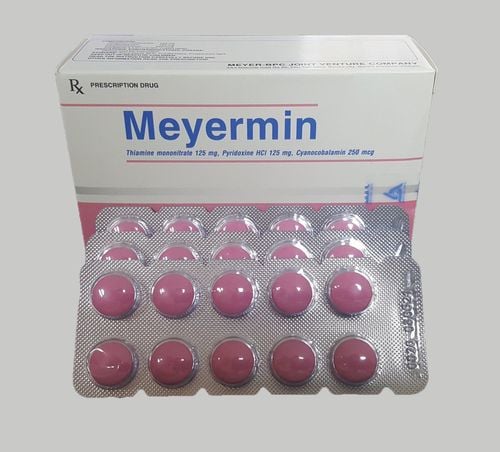This is an automatically translated article.
Children's development is assessed by many different criteria. In which physical development is usually assessed by two indicators that are height and weight. So, is a 19-20 month old baby weighing 10-11kg qualified?1. How much does a 20-month-old baby weigh?
20-month-old children are in the period of both physical and intellectual development, along with innocent and emotional expressions that are clearly shown on their faces.The life of a 20-month-old baby is often very noisy and busy, because the baby wants to explore everything around in his own way. This is also the time when you need to keep an eye on your baby's development in terms of psychophysiology, nutrition, health care as well as meeting the needs of safe play for your baby.
Tracking your baby's height and weight every month is an important job to help parents recognize their baby's health and physical status. According to the standard height and weight table of children according to the World Health Organization (WHO), the weight standards of a 20-month-old baby will be as follows:
The weight standard of a 20-month-old girl is:
Malnutrition : If the weight is less than 8.5kg. Risk of malnutrition: If you weigh less than 9.4kg. Normal: Weight about 10.6kg. Risk of obesity: If your weight is over 12.1kg. Obesity: If your weight is over 13.5kg. Weight standards for 20-month-old boys are:
Malnutrition: If the weight is less than 9.2kg. Risk of malnutrition: If the weight is less than 10.1kg. Normal: Weight about 11.3kg. Risk of obesity: If your weight is over 12.7kg. Obesity: If your weight is over 14kg. Thus, a 20-month-old baby weighing 10 kg and a girl baby has a normal weight according to the standards of the World Health Organization. If a 20-month-old boy weighs only 10-11kg, he is at risk of malnutrition or is normal depending on his exact weight. To be sure, you need to take your baby to the doctor for an accurate assessment and specific advice from a nutritionist.

Bé gái 20 tháng nặng 10kg là ở mức cân nặng tiêu chuẩn
2. What can a 20-month-old child do?
Your 20-month-old is still continuing to perfect their motor, language, and emotional skills. Here is a change for a 20-month-old:2.1 Motor development A 20-month-old baby weighing 10kg usually likes to get around on his own without adult assistance or holding hands. Your baby is interested in controlling the rolling ball, even though he still doesn't have the skills to pass the ball correctly. Babies also love to stroke their favorite toys.
The baby's facial expressions are shown very clearly. The baby will show a radiant face, with two hands clapping or swinging arms and legs wildly to show joy; baby can also make a sad face, less active... when he's sad.
2.2. Language development A 20-month-old baby weighing 9kg is in the process of continuing to develop his speaking skills. At this time, children can say a sentence of 4-5 words long, however, their sentences are often difficult to understand, confused and hard to hear.
If a 20-month-old baby is not yet able to speak, this is a problem that indicates that the child may have a language delay problem. In these cases, you should take your baby to see a specialist doctor for an examination.
2.3. Cognitive and emotional development At the age of 19 - 20 months, babies often show anxiety and fear when there are no parents or relatives around. Children may have reactions such as crying, rolling on the floor, screaming, or may hit or bite others when they are taken for a toy or don't like something.
Also, 20-month-old babies love to talk to their parents, so try to balance work and childcare.
3. What should a 20-month-old baby eat?
Your 20-month-old still needs 3 meals a day, plus 2 snacks. At this stage, children can already eat a lot of different foods, including: Green vegetables, fish meat, eggs, milk, fruits,...You can design a menu for your child to eat. 20 months old is almost like other members of the family, only the baby's portion size will be less than everyone else's.
In addition, you also need to note that toddlers are often very susceptible to calcium, iron and fiber deficiencies in the body. Therefore, in addition to dairy products, you need to give priority to giving your baby foods rich in these nutrients such as beef, tofu, broccoli or other dark green vegetables.

Bé 20 tháng nên ăn các loại thức ăn giàu canxi, sắt và chất xơ
4. Sleep of a 20-month-old baby
The total sleep time of a 20-month-old baby is about 13 hours/day, at night he will sleep for 10-12 hours and he usually has an extra nap during the day.If you have not put your baby to bed at 19 months, then when you turn 20 months, you should move your baby from the crib to the bed when sleeping. You should lower the mattress as low as possible to ensure the safety of the child.
Some babies at this stage will have poor sleep or refuse to go to bed on time. So try to build a bedtime routine for your baby and set limits between playtime and sleep to help them get a good night's sleep.
5. How to educate 20-month-old children through activities
If you think that children under 2 years old cannot understand the words of adults, you are completely wrong. In fact, you can already educate children as they begin to develop cognitively. Here are things you can do to help your 20-month-old develop better:Teach your child how to read early: Reading or talking to your baby every day is a way to help your baby develop speaking and memory skills and imagine. For example, when talking to your baby, you can ask your child to answer. Teach your baby to say "thank you" and "sorry": Your 20-month-old is also a good time to teach your baby manners, by teaching her to say "thank you" or "sorry". Although your child may not immediately follow your instructions, this is the first step in helping him build the foundation for being a well-behaved and understanding child. Teach your child to count: Although he may not understand what these numbers mean, however, when he hears them many times he will memorize the numbers and gradually he will be able to count the order of numbers. .
6. Health care for 20-month-old babies
It's never too early to teach kids about personal hygiene. With a 20-month-old child can already be taught how to use toothpaste to brush their teeth and they need to be brushed twice a day.20-month-old babies still can't use the toilet, so you can let your baby use the potty at this time is also quite suitable. Letting children sit on the potty while defecating will help them get used to sitting on the toilet when going to the toilet later.
Fever, cough, runny nose... can also appear in your baby unexpectedly, so you should prepare medicines such as fever reducer or fever patch,...and use medicine Follow your doctor's or the product's instructions when caring for your baby. If your child has a high fever, take him to the doctor.
It can be said that the development of a 20-month-old child is quite special, depending on the physical and individual characteristics, each child will have different development. However, don't worry too much if your baby's changes are slower than other babies. You should monitor your baby for a few more months because maybe in the next month he will accelerate his development faster.
Children who do not eat properly are at risk of micro-mineral deficiency causing anorexia, growth retardation, malabsorption,... If they notice the above signs, parents should supplement their children with products. The supplement contains lysine, essential micro-minerals and vitamins such as zinc, chromium, selenium, and B vitamins to help fully meet the nutritional needs of children. At the same time, these essential vitamins also support digestion, enhance nutrient absorption, help improve anorexia, and help children eat well.
Parents can learn more:
Signs of zinc deficiency in children
Micronutrient deficiency and failure to gain weight in children
Please regularly visit Vinmec.com website and update useful information to take care of your child. Take care of the baby and the whole family.













